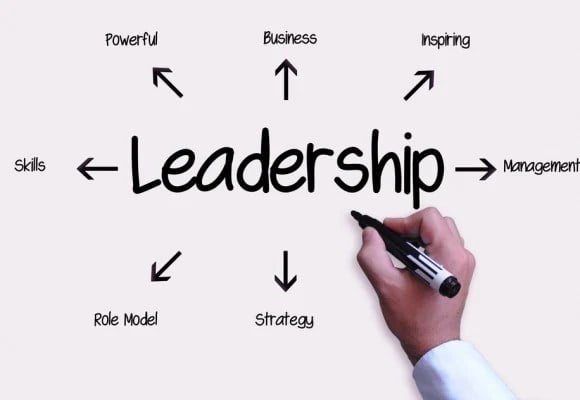
There lived a young boy with his parents in a village who was addicted to eating sugar. He was warned by his mother several times not to eat sugar, as it is bad for his health. The boy did not listen to his mother.
After some days, his mother decided to get help from a Sadhu who stayed in a village. She took her son to the place where Sadhu stayed. She walked miles in hot weather and finally reached the place and met Sadhu. She requested him to inform her son to stop eating sugar as it is not good for his health.
Sadhu said that he cannot tell her son right now to stop eating sugar and replied to her to bring back her son after a month and then he will speak to him. After hearing this, the mother was upset that Sadhu did not give any solution and went back to home.
After a month, she met Sadhu. This time Sadhu looked at the boy and said, “Hey young boy, you should stop eating sugar as it is not good for your health and listen to your mother and obey her.” The boy agreed to that. The mother curiously asked to that Sadhu, “Why didn’t you tell him to stop eating sugar last time when I bought him here?” Sadhu smiled and said to mother “last time when you came, I too had the habit of eating a lot of sugar myself.”
“If we want people to follow or listen to you, you should lead as an example on things that we want others to follow. In this way by leading, you create confidence and trust in people in you”.
How Leadership Skills Are Important for Professional Development?
Leadership skills are the strengths and abilities individuals demonstrate that help their employees towards the achievement of goals.
Leadership skills can help you in all aspects of your career advancement. Leadership skills often incorporate several different personality traits that are useful for anyone to learn and practice over time. Learning be a good leader can greatly impact the success of your team, your organization and yourself. Effective leaders help build strong teams within a business and ensure work functions are performed successfully. Good leaders increase employee engagement, support a positive environment, and help remove obstacles for their team. Leadership skills is also contagious, inspiring colleagues to apply positive leadership traits in their own work.

How To Improve Leadership Skills?
Some examples on how you can develop your leadership skills were listed below.
Self-study
Self-study on leadership may help you get a better understanding on how to develop your leadership skills. Many books about leadership skills. There are also many podcasts and video workshops you can find offered online.
Leadership trainings and Leadership activities
You can find online courses that help teach leadership skills. In-person courses often include practice sessions and role play.
If you have trouble finding leadership opportunities in your job, you may be able to find them outside of your workplace also. This can help you taking the lead in organizing activities or work outings with your colleagues.
Mentorship
On of the best ways to learn is by studying under those you admire most. You can approach Certified Soft Skills trainers to mentor or coach you on a weekly or monthly basis. You can set goals towards becoming a better leader by developing leadership skills and using them as per the guidance. If you are women, there are specific Women Leadership Programs to learn.
Effective Leadership Skills
Communication
A Leader should regularly be available to discuss issues and concerns with employees. Effective leaders also understand that communicating goes beyond attentive listening and providing answers to complex situations.
A good leader keeps an open line of communication with team members and explain organizational goals and tasks using different types of communication channels, such as one-on-one sessions, email, video, chat, phone calls and social media. An effective leader also shares clear messages with the team and makes complex ideas easy to understand for everyone.
Straightforward communication or honesty inspires your employees to reciprocate always. Each team member may have a different communication style and it is important to deliver your communication based on the individual.
Motivation
Leaders need to motivate and inspire their workers to go the extra mile for their team/organization. There are many ways to motivate your workers you may build employee like improving self-esteem through recognition and rewards, by giving employees new responsibilities by recognizing their potential to increase their investment and growth in the company and with positive results.
Conflict Management
When there is a conflict, an effective leader should be able to jump in and resolve or at least mitigate the conflict before it affects the business negatively.
As a leader, it is important that you can manage conflict but developing these same skills in your team can help avoid conflict altogether. A leader not only knows how to avoid conflicts in the workplace but can also resolve them in an efficient and timely manner. A leader stays level-headed and decides analytically during conflicts in the workplace.
Time Management
This is an important skill for leaders to develop as they need to delegate and prioritize tasks, set attainable goals, and multitasking. Effective leaders practice time management skills by setting SMART goals for themselves and their team members.
A successful leader is on who is followed by others. A great leader Empowers team members with information, tools, skills and professional development opportunities, a leader can successfully help employees reach their career goals.
Conclusion
Organizations should strengthen leadership qualities at work by providing a variety of on the job learning experiences, mentoring, and formal development opportunities for experienced team members using corporate training programs.
For professional development, you need to start building the qualities of a good leader in yourself and on your team.





Leave a Reply